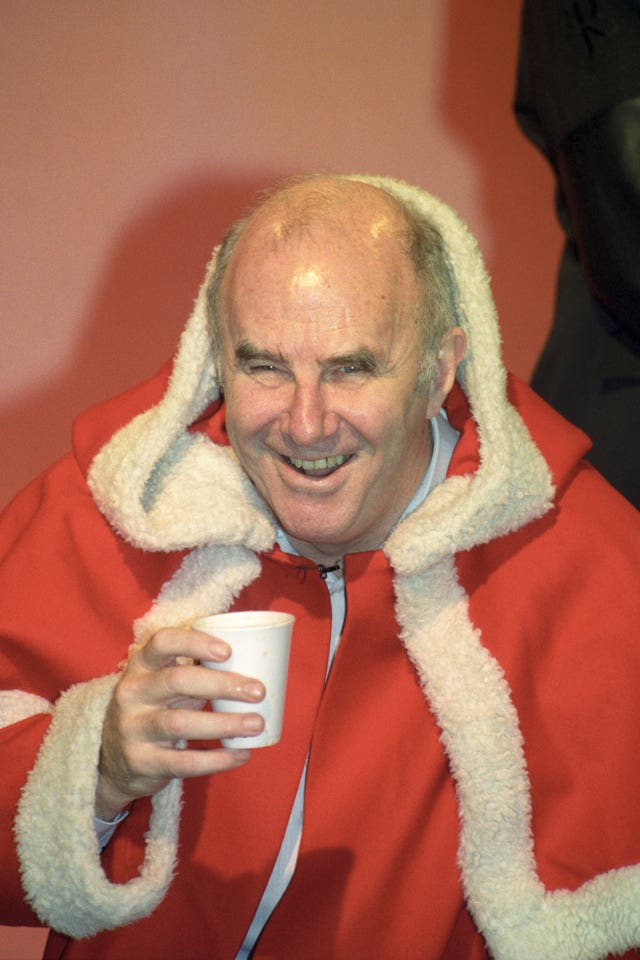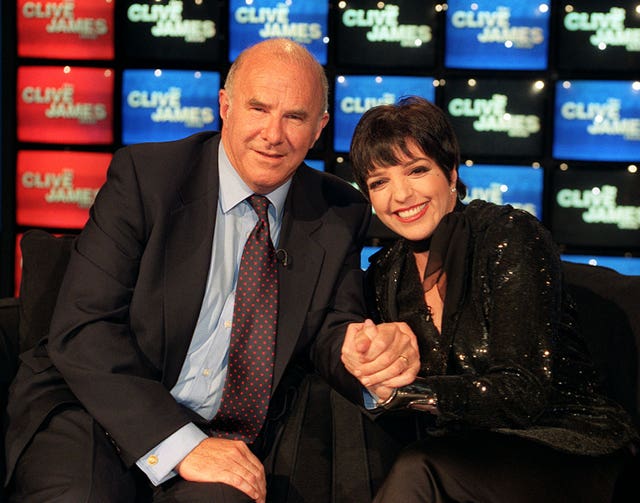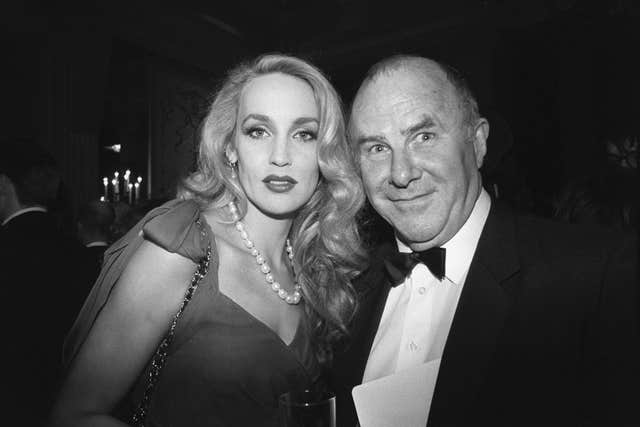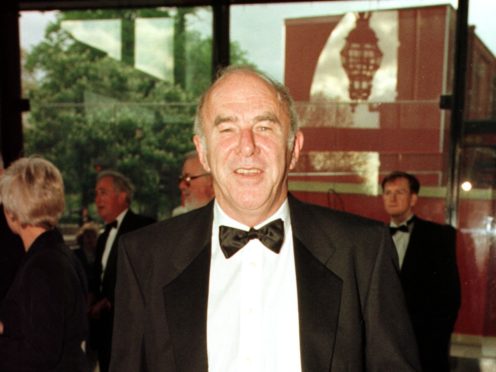Clive James has been described as “a person that you could only fall in love with” by his friend Bernie Ecclestone following his death.
The author, critic and broadcaster died at the age of 80 on Sunday November 24, a month after laying down his pen for the last time.
Australian-born James was a fan of motor racing and had presented for Formula 1 several times in his career, including his own show to coincide with the 1997 season for ITV.

In a statement given to the PA news agency, former motoring racing chief Ecclestone said: “Clive was a person that you could only fall in love with and luckily he was in love with Formula 1.
“He presented the official Formula 1 season review videos in 1982, 1984 and 1986 and The Clive James Formula 1 Show in 1997, all with Clive’s great sense of humour which is truly missed.”
James was diagnosed with leukaemia, kidney failure and lung disease in 2010 and over the years wrote and updated his own obituary.
He died at home in Cambridge at the weekend and a private funeral attended by family and close friends took place in the chapel at Pembroke College, Cambridge, on Wednesday.
Among those paying tribute to James was satirist, writer and director Armando Iannucci, who tweeted: “I used to practically hug The Observer in spasms of laughter reading Clive James’ TV reviews; ‘The Crystal Bucket’ is one of the funniest books around.
I used to practically hug The Observer in spasms of laughter reading Clive James’ TV reviews; ‘The Crystal Bucket’ is one of the funniest books around. And ‘Cultural Amnesia’ is an amazing book for reminding you that thinking can be joyful. His influence is incalculable.
— Armando Iannucci (@Aiannucci) November 28, 2019
“And ‘Cultural Amnesia’ is an amazing book for reminding you that thinking can be joyful. His influence is incalculable.”
Broadcaster Stephen Fry also referenced the death of Sir Jonathan Miller, which was also announced on Wednesday, in his tribute to James.
He described both James and Sir Jonathan as “two heroes of mine growing up” adding: “Each so wildly and profusely gifted in so many directions.
“Very sorry to think they’re not in this world any more.”
Clive James and Jonathan Miller – two heroes of mine growing up. Each so wildly and profusely gifted in so many directions. Very sorry to think they're not in this world any more. And I just heard that Gary Rhodes has been snatched from us too. How very sad.
— Stephen Fry (@stephenfry) November 27, 2019
BBC director-general Lord Tony Hall said James was “a clever, witty and thought-provoking broadcaster. He had a huge range of talents and everything he did was essential listening or viewing. He is irreplaceable”.
Actor and theatre director Samuel West also remembered James, writing in a tweet: “We were lucky to have him for so long after his diagnosis. We were lucky to have him at all. RIP Clive James.”
A statement on behalf of James’ family on Wednesday said: “Clive died almost 10 years after his first terminal diagnosis, and one month after he laid down his pen for the last time.
“He endured his ever-multiplying illnesses with patience and good humour, knowing until the last moment that he had experienced more than his fair share of this ‘great, good world’.”

James first revealed the news of his illness in May 2011 – when he had already been ill for 15 months – when he wrote to The Australian Literary Review to explain why he could not write for them.
He became the television critic for The Observer in 1972 and selections from his column, which he wrote for more than 10 years, were published in three books.
Over the years he ventured into memoir and released four novels, and he found fame on the small screen as the host of Clive James On Television, Saturday Night Clive and The Clive James Show. He also fronted the BBC’s Review Of The Year programmes in the late 1980s, as part of the channel’s New Year’s Eve broadcast.
He also fronted travel programmes and made the major documentary series Fame In The 20th Century in 1993, while on radio he presented BBC Radio 4’s A Point Of View.

During his illness he increasingly focused on writing poetry, including the collection Nefertiti in the Flak Tower and the poem Japanese Maple, which was published in The New Yorker in 2014 and became a viral sensation before appearing in the best-seller Sentenced To Life in 2015.
More recently he wrote a book about binge-watching called Play All and in October 2019 he released Somewhere Becoming Rain, a collection of writings about the work of Philip Larkin.
His self-penned obituary revealed that a long and ultimately unsuccessful operation to remove a cancer on his cheek in February 2019 left him frail and almost blind.
He spent the spring and summer of 2019 writing and editing an autobiographical anthology called The Fire Of Joy, which he described as a raid on “the treasure-house of his mind”.
The book will be furnished with his notes on each poem and was finished a month before his death. It will be published in 2020.
